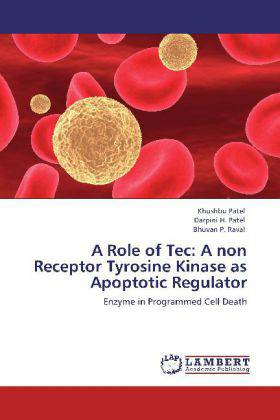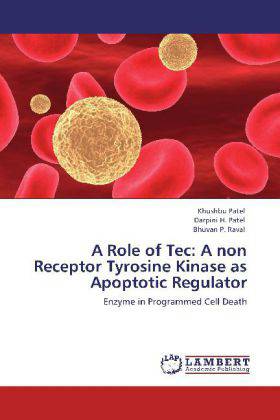
- Afhalen na 1 uur in een winkel met voorraad
- Gratis thuislevering in België vanaf € 30
- Ruim aanbod met 7 miljoen producten
- Afhalen na 1 uur in een winkel met voorraad
- Gratis thuislevering in België vanaf € 30
- Ruim aanbod met 7 miljoen producten
Zoeken
Omschrijving
Protein-tyrosine kinases (PTKs) play an essential role in the intracellular mitogenic signaling mechanism. In fact, many growth factor receptors themselves have intrinsic PTK activity, as evidenced by the cases of epidermal growth factor (EGF), nerve growth factor (NGF) and stem cell factor (SCF) receptors. In contrast to these receptor-type PTKs, many PTKs do not have a transmembrane domain in their structure. These are designated as non-receptor-type PTKs or cytoplasmic PTKs. Non-receptor PTKs can be further subdivided into a number of sub- families, one of which is the Tec family. The Tec family consists of five members, namely Tec, Btk, Itk/Emt/Tsk, Bmx and Txk/Rlk. Many members of this family are abundantly expressed in hematopoietic tissues, where they are presumed to function in the growth, differentiation or both processes of blood cells. This hypothesis is strengthened by the fact that the Btk kinase molecule is responsible for X chromosome-linked agammaglobulinemia (XLA) in humans and X chromosome-linked immunodeficiency (Xid) in mice.
Specificaties
Betrokkenen
- Auteur(s):
- Uitgeverij:
Inhoud
- Aantal bladzijden:
- 80
- Taal:
- Engels
Eigenschappen
- Productcode (EAN):
- 9783848483112
- Verschijningsdatum:
- 21/04/2012
- Uitvoering:
- Paperback
- Formaat:
- Trade paperback (VS)
- Afmetingen:
- 152 mm x 229 mm
- Gewicht:
- 127 g

Alleen bij Standaard Boekhandel
+ 96 punten op je klantenkaart van Standaard Boekhandel
Beoordelingen
We publiceren alleen reviews die voldoen aan de voorwaarden voor reviews. Bekijk onze voorwaarden voor reviews.











